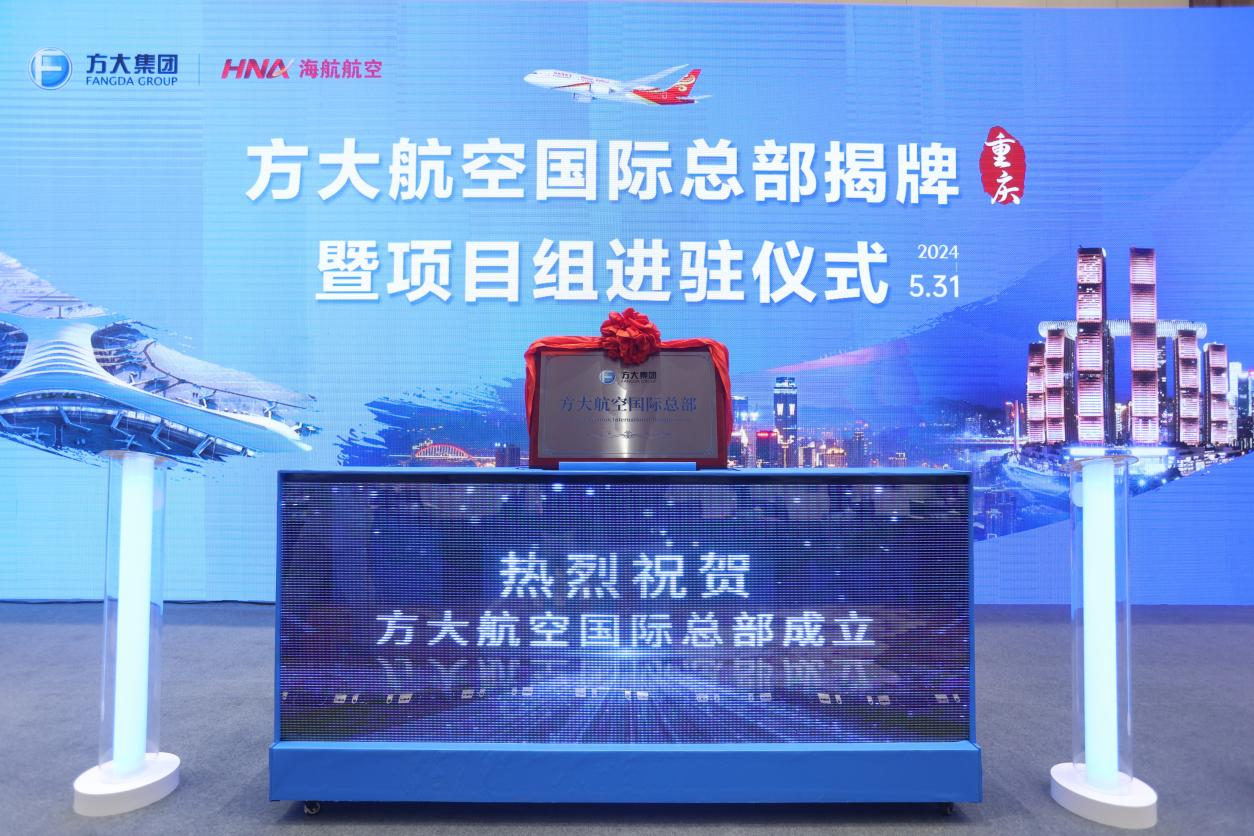 Bridging News
Bridging News
Fangda Aviation Int'l Headquarters Unveiled in Chongqing
Chongqing – The unveiling ceremony for the Fangda Aviation International Headquarters took place on May 31 in Southwest China's Chongqing.
The headquarters will be operated by Fangda Group, a Liaoning-based company specializing in carbon, steel, medicine, commerce, and aviation. This marks the beginning of the Fangda Chongqing Aviation City Project, a joint effort between the Chongqing Municipal People's Government and Fangda Group.
On April 1, 2024, Fangda Group signed a strategic cooperation agreement with the Chongqing Municipal People's Government. The agreement involves building an international headquarters, establishing two main base airlines for passenger and cargo transport, introducing three air-related industrial projects, enhancing and expanding four aviation-related industries, and creating a new comprehensive logistics service company.

Unveiling of Fangda International Headquarters. (Photo/Event Organizer)
Since the contract signing, Fangda Group has accelerated project implementation by establishing eight project teams and collaborating closely with relevant units. Currently, the 11 airlines affiliated with HNA Group, a subsidiary of Fangda Group, carry more than 22% of the passengers at Chongqing Airport. Hainan Airlines has launched a direct international route from Chongqing to Seattle, and its affiliated airlines have opened eight international routes from Chongqing to Rome, Madrid, London, Paris, Sydney, Milan, Seattle, and Hanoi. These include seven intercontinental routes, accounting for nearly 90% of Chongqing's overall passenger market.
In the future, the Fangda Aviation International Headquarters will coordinate and promote Hainan Airlines and its subsidiaries. They will focus on Chongqing's needs for foreign and economic exchanges, strengthen the main transportation channels for long-distance international routes, and prioritize political and economic centers in North America, Europe, and Oceania. The goal is to further improvement of Chongqing's intercontinental route network.
Additionally, HNA will focus on capitals and key economic cities in RCEP countries such as Japan, South Korea, Thailand, and Vietnam. The aim is to enhance the network capacity of intercontinental routes originating from Chongqing and connecting to short-haul routes in neighboring countries.
By the end of 2028, Fangda Group plans to have about 60 aircraft in operation and will continue to invest in personnel and assets. By building an international route network aligned with Chongqing's strategic development goals, optimizing the international hub and domestic trunk transit network, and enhancing transit service products, they aim to establish an aviation hub network that reaches the world and covers all RCEP countries. This will help Chongqing to become an inland open highland, accelerate the construction of the New International Land-Sea Trade Corridor, and strengthen Chongqing's position in the global industrial chain.
 Related Stories
Related Stories